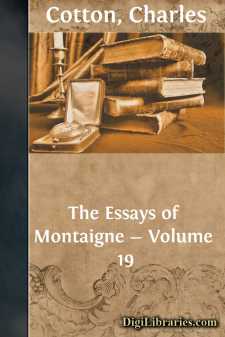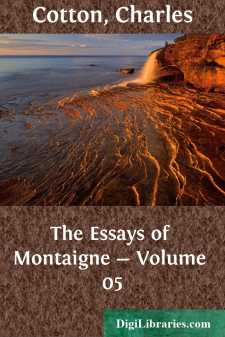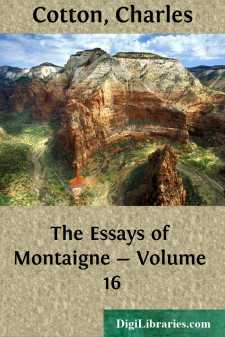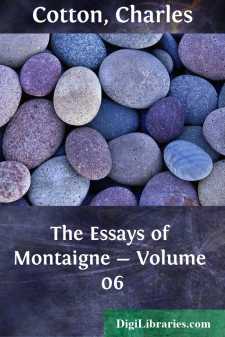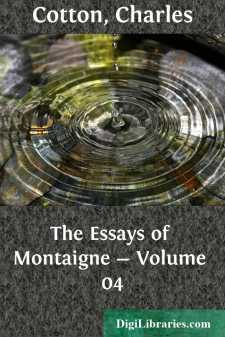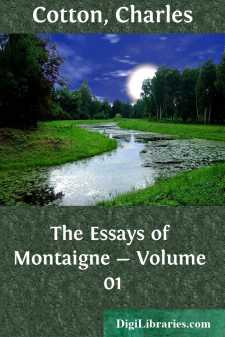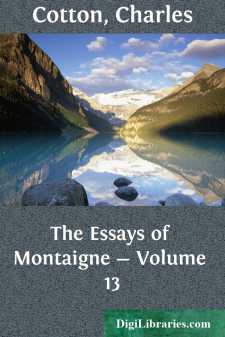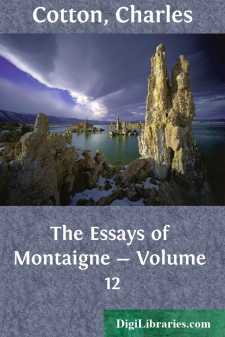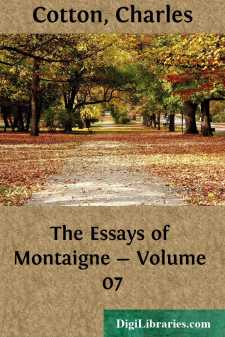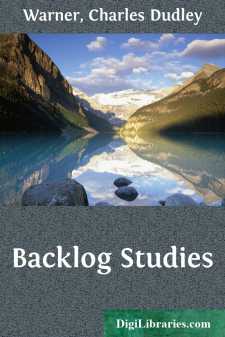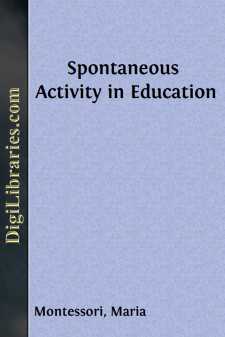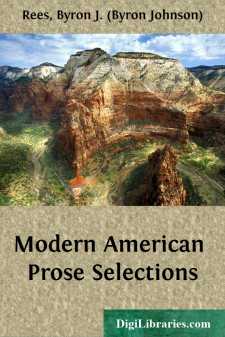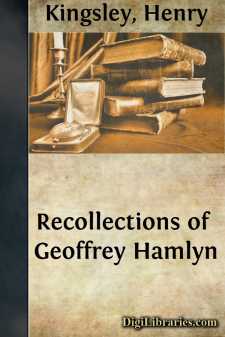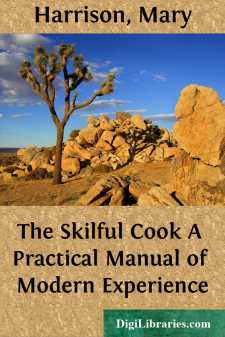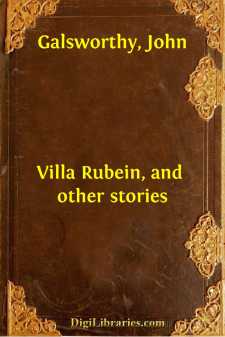Categories
- Antiques & Collectibles 13
- Architecture 36
- Art 48
- Bibles 22
- Biography & Autobiography 813
- Body, Mind & Spirit 142
- Business & Economics 28
- Children's Books 15
- Children's Fiction 12
- Computers 4
- Cooking 94
- Crafts & Hobbies 4
- Drama 346
- Education 46
- Family & Relationships 57
- Fiction 11829
- Games 19
- Gardening 17
- Health & Fitness 34
- History 1377
- House & Home 1
- Humor 147
- Juvenile Fiction 1873
- Juvenile Nonfiction 202
- Language Arts & Disciplines 88
- Law 16
- Literary Collections 686
- Literary Criticism 179
- Mathematics 13
- Medical 41
- Music 40
- Nature 179
- Non-Classifiable 1768
- Performing Arts 7
- Periodicals 1453
- Philosophy 64
- Photography 2
- Poetry 896
- Political Science 203
- Psychology 42
- Reference 154
- Religion 513
- Science 126
- Self-Help 84
- Social Science 81
- Sports & Recreation 34
- Study Aids 3
- Technology & Engineering 59
- Transportation 23
- Travel 463
- True Crime 29
The Essays of Montaigne - Volume 19
by: Charles Cotton
Categories:
Description:
Excerpt
There is no desire more natural than that of knowledge. We try all ways that can lead us to it; where reason is wanting, we therein employ experience,
"Per varios usus artem experientia fecit,
Exemplo monstrante viam,"
["By various trials experience created art, example shewing the
way."—Manilius, i. 59.]
which is a means much more weak and cheap; but truth is so great a thing that we ought not to disdain any mediation that will guide us to it. Reason has so many forms that we know not to which to take; experience has no fewer; the consequence we would draw from the comparison of events is unsure, by reason they are always unlike. There is no quality so universal in this image of things as diversity and variety. Both the Greeks and the Latins and we, for the most express example of similitude, employ that of eggs; and yet there have been men, particularly one at Delphos, who could distinguish marks of difference amongst eggs so well that he never mistook one for another, and having many hens, could tell which had laid it.
Dissimilitude intrudes itself of itself in our works; no art can arrive at perfect similitude: neither Perrozet nor any other can so carefully polish and blanch the backs of his cards that some gamesters will not distinguish them by seeing them only shuffled by another. Resemblance does not so much make one as difference makes another. Nature has obliged herself to make nothing other that was not unlike.
And yet I am not much pleased with his opinion, who thought by the multitude of laws to curb the authority of judges in cutting out for them their several parcels; he was not aware that there is as much liberty and latitude in the interpretation of laws as in their form; and they but fool themselves, who think to lessen and stop our disputes by recalling us to the express words of the Bible: forasmuch as our mind does not find the field less spacious wherein to controvert the sense of another than to deliver his own; and as if there were less animosity and tartness in commentary than in invention. We see how much he was mistaken, for we have more laws in France than all the rest of the world put together, and more than would be necessary for the government of all the worlds of Epicurus:
"Ut olim flagitiis, sic nunc legibus, laboramus."
["As we were formerly by crimes, so we are now overburdened by laws."—Tacitus, Annal., iii. 25.]
and yet we have left so much to the opinions and decisions of our judges that there never was so full a liberty or so full a license. What have our legislators gained by culling out a hundred thousand particular cases, and by applying to these a hundred thousand laws? This number holds no manner of proportion with the infinite diversity of human actions; the multiplication of our inventions will never arrive at the variety of examples; add to these a hundred times as many more, it will still not happen that, of events to come, there shall one be found that, in this vast number of millions of events so chosen and recorded, shall so tally with any other one, and be so exactly coupled and matched with it that there will not remain some circumstance and diversity which will require a diverse judgment....


